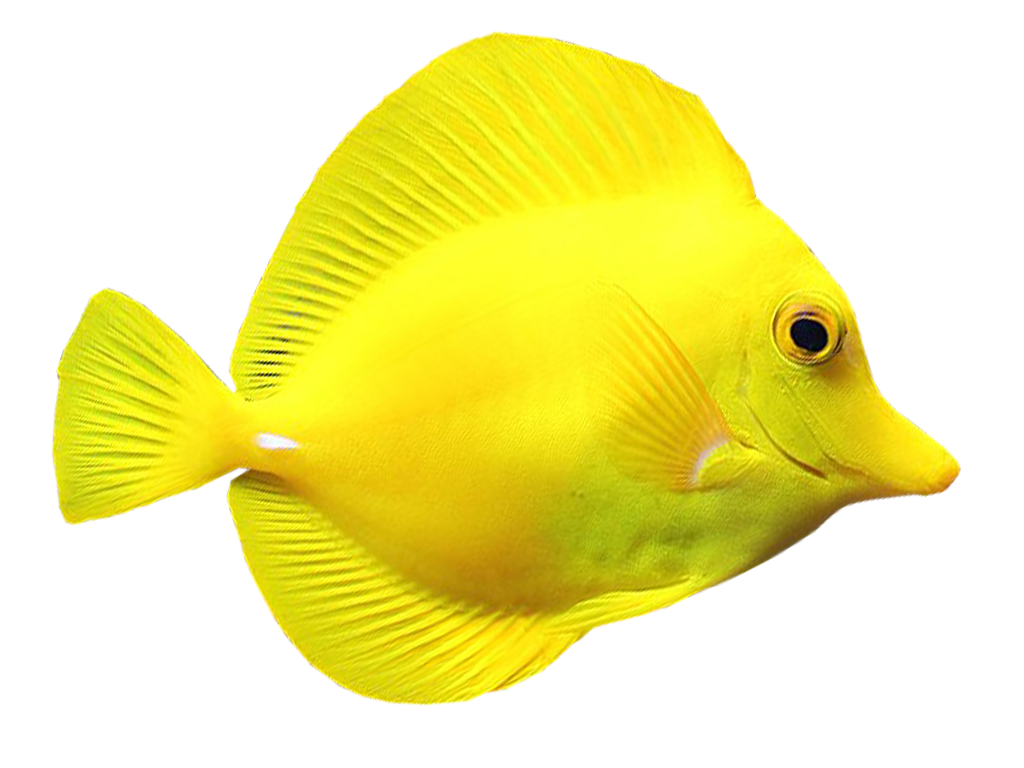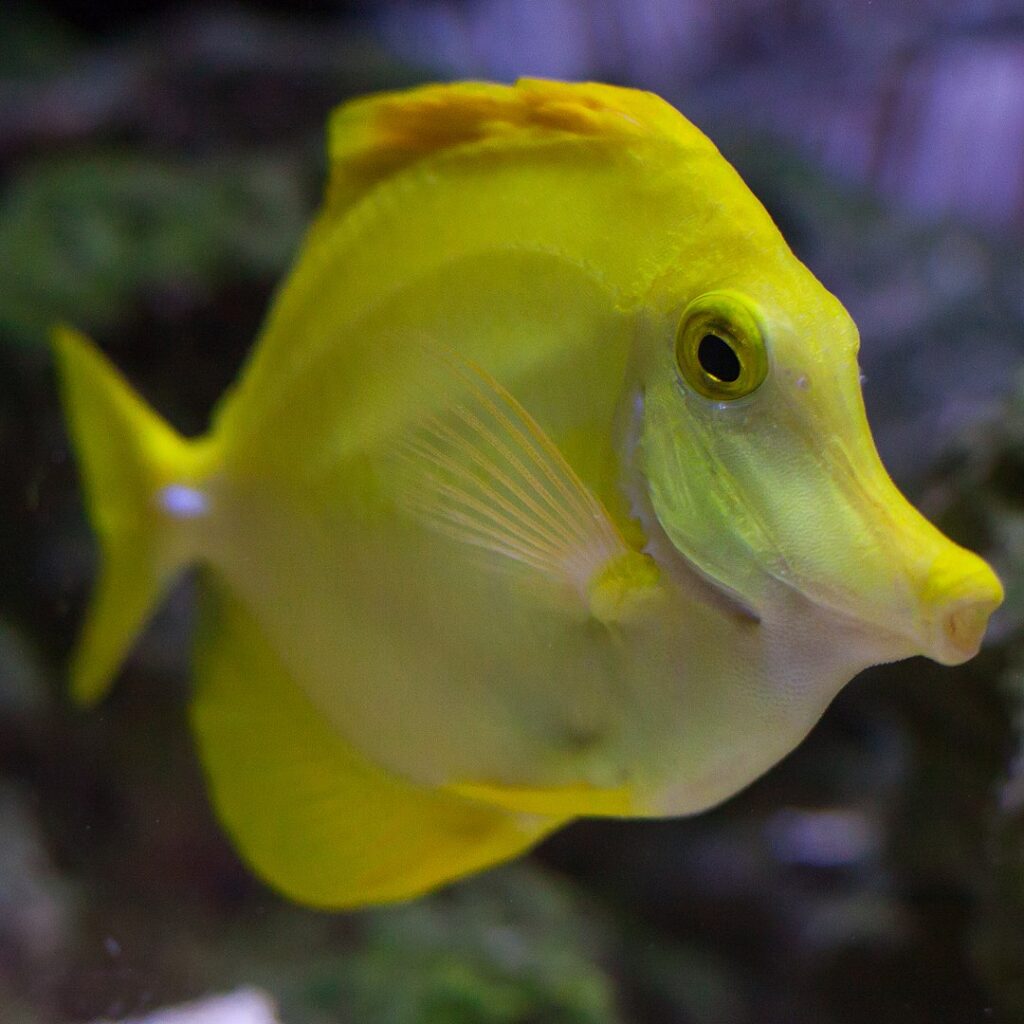Yellow Tang
Zebrasoma flavescens

Helps the corals
The yellow tang is easy to spot thanks to its bright yellow colour, long and pointed mouth, and thin body. This species lives mainly in shallow coral reefs, but it can be found at depths ranging from 2 to 50 metres. Yellow tangs are important to the coral reefs, as they use their sharp teeth to graze algae growing on the coral. If the algae are allowed to grow too much, they can damage the coral.

Photo: Webysther-CC-BY-SA
Defends itself with sharp scalpels
The yellow tang is a territorial fish. The male and female spawn in open water and the female lays huge quantities of eggs – as much as 40,000 at a time! The male fertilises the eggs close to the surface, and the fry are left on their own.
Just like all other members of the tang family (or surgeonfishes), the yellow tang has modified scales at the root of the tail fin which are sharp as a scalpel. These scales are located inside a pocket along the fish’s body and can be extended when the fish flips its tail fin. The “scalpels” are used both when defending against predators and when combatting rival males. The yellow tang is a popular aquarium fish thanks to its striking appearance.

Distribution worldwide

The Pacific Ocean and Indian Ocean, close to the equator all around the globe.
Threat based on the Red List

Trade regulations
CITES: Not listed.